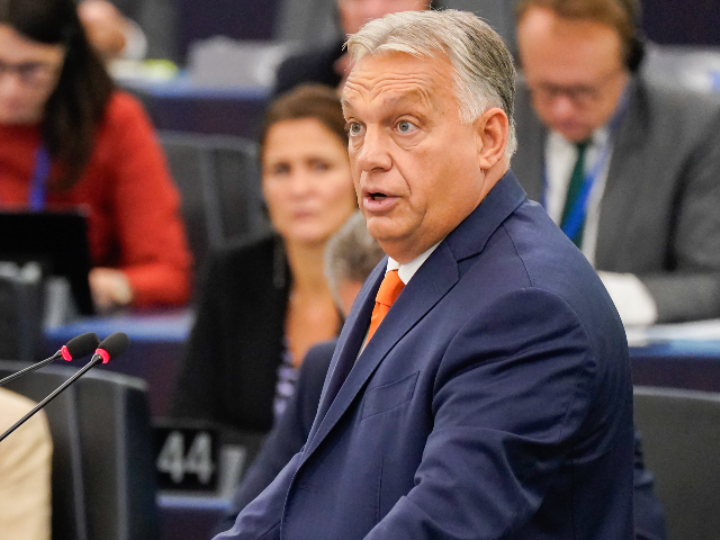The recovery plan laid out by the Commission is promising, as it continues to keep the European Green Deal at the heart of EU policy making. The proposed investment of €750 billion in Next Generation EU is a necessary measure to support Member States in their recovery from COVID-19.
Further, the commitment to the creation of a circular economy and relocalisation of production has the potential to create a million new green jobs. With youth unemployment remaining high this is a welcome and important step.
However, more work needs to be done to ensure the recovery is a green recovery, that is fair for all and to build an EU that engages with its citizens and is truly democratic. As Europe’s youth we call for a Youth Green Recovery Dialogue, where young people can have a voice in the recovery process that will define our future.
An economic recovery for the 21st century
The proposed introduction of Next Generation EU and its €750 billion budget is essential, but with only €55 billion directly allocated to supporting the green transition, we have our concerns.
If the EU is serious about transitioning and meeting the targets that it has set for itself and negotiated on the global stage, then it can no longer afford to fund polluting practices and those which further delay the green transition.
Additionally, the financial adjustments make no advance on the Commission’s 2018 proposal to allocate 25% of the EU’s next seven year budget for climate action. We believe that this is insufficient.
At least 50% must be reserved for the EU’s climate and environmental targets and the remaining 50% must undergo environmental impact assessments to ensure that it is not detrimental to the green transition.
There needs to be cohesion in the EU’s budget to ensure that we do not repeat the mistakes of the bailouts after the 2008 financial crisis. Corporations must not be saved at the expense of people and the planet.
We believe that transparent and conditional bailouts are essential in ensuring that companies are held accountable for their actions. There must be stricter taxation on companies that continue to pollute and those who fail to match the ambition of the EU’s climate and environmental targets.
They must not be allowed to continue their environmental and societal malpractice. This will not only work to reduce environmental degradation but will also free up further funds that can be used to support and accelerate the green transition.
This recovery package must make an assured step away from the practices that have created the climate crisis and contributed to the severity of the COVID-19 crisis. It must treat the underlying causes of these crises and ensure that the mistakes of the past are not repeated.
Green investment for all
COVID-19 has devastated the labour market, putting 25% of jobs in the EU under threat. Spain alone has lost nearly a million jobs as a result of the pandemic. This has been particularly impactful for young people as the EU’s youth unemployment rate remains high (15.4%), over double the overall unemployment rate (6.6%).
This crisis, however, also offers an opportunity. A chance to increase the investments in education, research and innovation. This will make citizens more resilient to the changes that need to happen in the labour market and boost Europe’s capacity to innovate, mitigating the climate and environmental crises.
The EU and its member states should invest in skills that are necessary in the transition to a sustainable society and economy. In particular, in the reskilling of workers already active in the labour market and training to ensure that young people are empowered to take an active role in a green and fair economy.
Building a resilient EU with Europe’s youth
If we want this to be the fund for the Next Generation of our Union, we need a strong accountable governance structure, which gives a meaningful space to the youth.
Good governance in the disbursement of funds, including transparency and strategic environmental assessment is essential.
To avoid negative impacts on the democratic functioning of society, funds should be provided to youth civil society organisations whose sources of income have been impacted by the pandemic. In particular, funding must be secured for youth-led grassroots organisations and initiatives that have contributed to the 2019 European green wave.
All the EU sectoral programmes (Erasmus+, European Solidarity Corps, etc) were reduced in the latest budget proposal, but these programmes are the strongest tools that the EU has to empower young people. The recovery plan must strengthen the work of youth, not hinder us in this crucial moment.
The existing youth civil society should be included in the Green Recovery discussions and especially in environmental and climate decision-making processes.
A Youth Green Recovery Dialogue could be quickly implemented to provide young people with a space to channel their proposals and concerns. Including youth is not only about more inclusivity in the climate and environmental decision-making processes.
It also contributes to strengthening the European identity and bridging the gap between the EU and its youth.
This way, the EU’s “Next Generation fund” can belong to whom it concerns first, Europe’s youth.
*first published in: www.euractiv.com




 By: N. Peter Kramer
By: N. Peter Kramer
